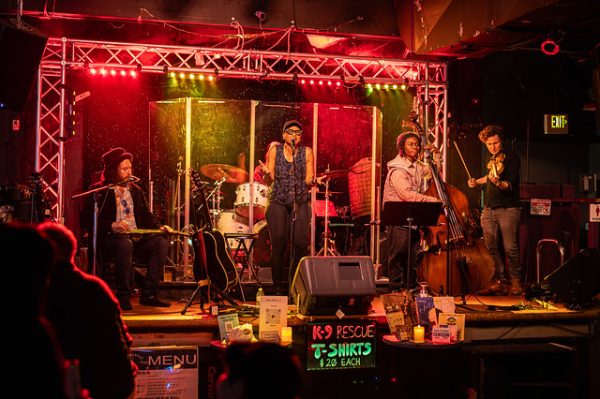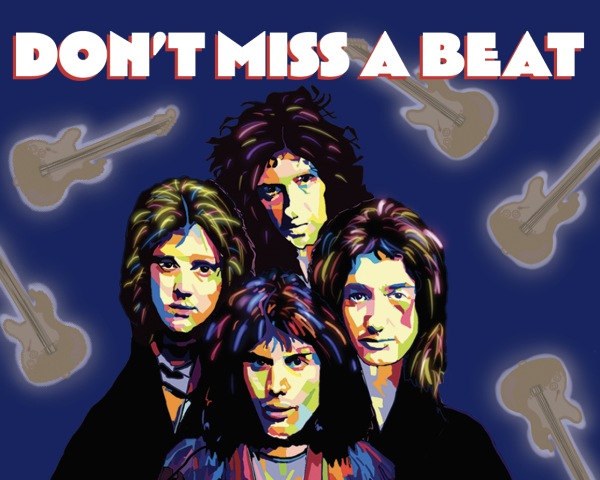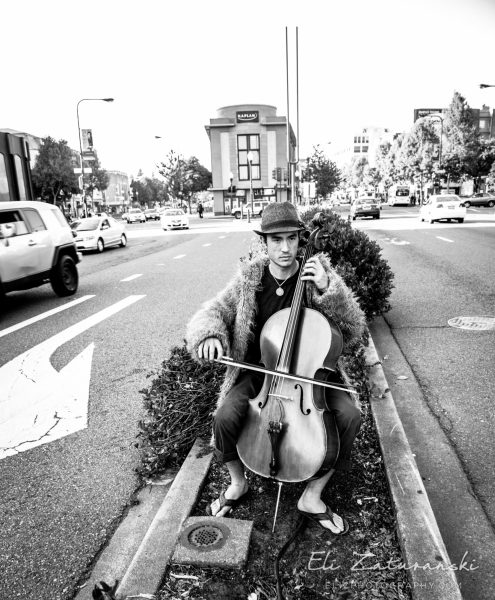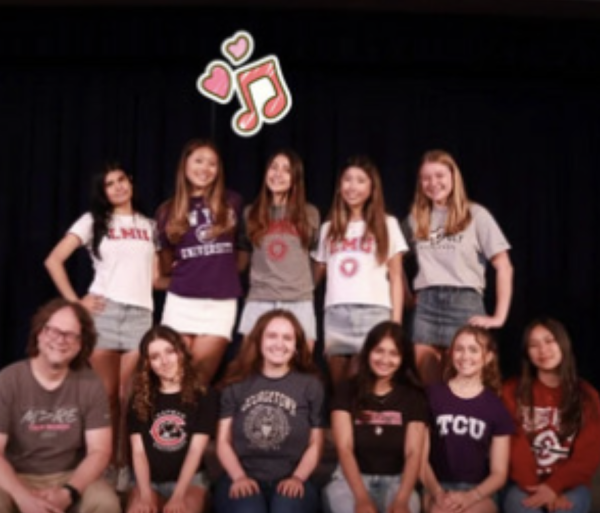Composing Identity
Composing and producing music is a powerful mode for self-expression
Art by Isabella Pei
Kyle Park
Strumming through chords on his guitar, junior Kyle Park digs deep into his personal experiences and lets his emotions out through singing. After hours of fiddling with the chords and lyrics, Park finalizes his song and gets to work producing.
Although Park has been playing piano and guitar for 11 years, his interest in songwriting did not begin until quarantine, when he needed a way to express himself.
“I use [songwriting] as an outlet,” Park said. “It’s a place where I can talk about the things I want to talk about.”
Park’s songwriting process heavily revolves around his mood at the time. One of the songs on Park’s upcoming Extended Play (EP) — a collection of songs typically shorter than a full album — is titled, “Campfire.” In the song, Park imagined the scene of bonding with friends while watching the campfire die down, and relates that to the bliss of being young and the fear of leaving adolescence.
“I parallel the campfire to reckless youth,” Park said. “You don’t want [the night] to end [when you are] sitting around the fire… and you don’t want your youth to end. It’s about fearing the future, while also being in the present moment and enjoying it.”
Park, with the help of his friend, produces his music using computer software. During the production process, Park avoids editing his songs heavily because he prefers them to feel more authentic.
“I want [my songs] to have that raw sound to them, where it’s just singing and guitar,” Park said. “That’s more personal, especially as a listener. When [a song is] overproduced, … it takes away from how well I can connect with the music.”
Because Park initially began composing for himself to self-reflect, his new EP will be a significant milestone for him in sharing his music with the public.
“Once I’ve released this, [it] will be a personal peak for me,” Park said.
Elizabeth Wong
Writing out her music, senior Elizabeth Wong can envision herself as a character from her favorite movie, living out their tragic heartbreak or uplifting moment. She scribbles down lyrics onto the page to make the story truly come to life for her.
Wong began practicing music at three years old when she took piano and vocal lessons. However, her passion for songwriting did not spark until she began creating ballads in middle school.
“Most artists write as they are in a moment of sadness,” Wong said. “I write when I’m in a good place [for songwriting] to act as a reflecting process and [a way] to sort myself together.”
“I try to put myself in that place and see how I resonate with a narrative,” Wong said.
Wong admits that she does feel pressure to constantly create music, and she encounters many instances of writer’s block. As an artist, she has had trouble conceiving new ideas for songs, but with time she has been able to overcome this obstacle.
Wong has collaborated with her friend in the past to create music videos and enjoys the visual aspect of the music process, but she is currently focusing on songwriting. One of Wong’s latest EPs, Mystery, showcases five of her latest songs and can be found on Spotify. In the future, she hopes to continue creating music and releasing her songs to the public. To Wong, crafting stories for her songs is a way of exploring the freedom of songwriting.
“I feel like the best thing to do is just relax for a moment because there’s a reason why you have writer’s block in the first place,” Wong said. “The best [strategy] is to wait it out until you have inspiration.”
“As an artist, you have the freedom to do anything… and there are no boundaries.”
Akhil Joondeph
Headphones on, he meticulously tweaks the reverberation waves on his laptop in front of him. The sound emits from his computer as he attempts to imitate the melody that he has clearly envisioned in his mind.
Senior Akhil Joondeph is a sound mixer and occasional traditional composer. Joondeph, a performer of Indian dance, creates mixes of music on his computer for both his own pieces and for a UCSB competitive Indian dance team. His initial talent for music composition stemmed from his involvement in dance and formal music theory training when he was younger. He cultivates inspiration for a mix from the various musical influences around him.
“I always have music in my head… so when I’m conceptualizing a dance piece, I hear [music] and I [know that’s] what I want,” Joondeph said. “So then I’ll go and transition to composing.”
Creating a sound mix using computer software, like Joondeph does, involves blending various parts of different songs into a new, singular piece. The process is time-consuming and involves much trial and error to figure out the flow of the song.
“I hear what parts are building, what parts are low in terms of energy or intensity, and what [parts] are high like the climax,” Joondeph said. “I’ll think about how I want the mix to move.”
Although Joondeph’s sound blends are formed from various parts of different songs, he finds that he creates more fluid compositions by viewing them as their own pieces, rather than compilations of others.
“I always think about my mixes as [their] own songs,” Joondeph said. “I don’t really think about them as splices of other songs. [I think about] how I would want a song to flow, how verses and choruses flow in a normal song, how [the music would] build in a normal song. That’s what makes mixes more melodic and less like ‘chunk, chunk, splice.’”
Joondeph’s interest in sound mixing and music generally stems from the different musical influences throughout his life, especially as a person of mixed race.
“Ever since I was younger, and as a mixed-race person, [there was] a lot of different musical influences [in my life],” Joondeph said. “[There was] lots of ‘80s and ‘90s music from my dad, and then from my mom’s side and my grandma, [there was] a lot of Indian music.”
Creating sound mixes is an especially meaningful pursuit for Joondeph because it gives him the ability to represent his mixed-race identity by tapping into these musical influences that shaped him throughout his life.
“I felt like my identity wasn’t necessarily reflected in any music as an Indian American person,” Joondeph said. “There was Indian music and there was American music, [but] there wasn’t really that togetherness with them. So I took initiative and created that myself.”
Print Issue
Please click on the three vertical dots on the top right-hand side corner, then select “Two page view.”
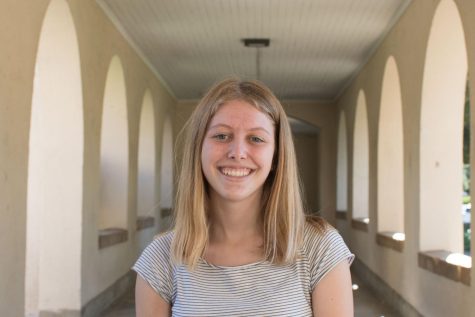
2020-2021 - Staff Writer
2021-2022 - Managing Editor
I joined CMag because I was interested in writing about arts, music, and culture and...
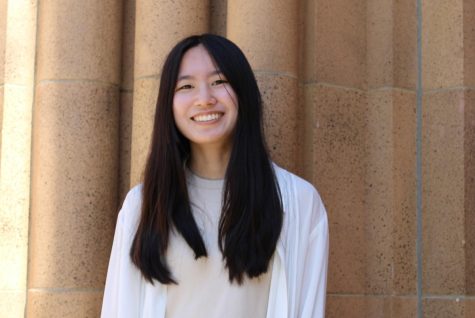
2020-2021 - Staff Writer
2021-2022 - Staff Writer
2022-2023 - Managing Editor
I joined C Mag because of the focus on arts and representing our...




